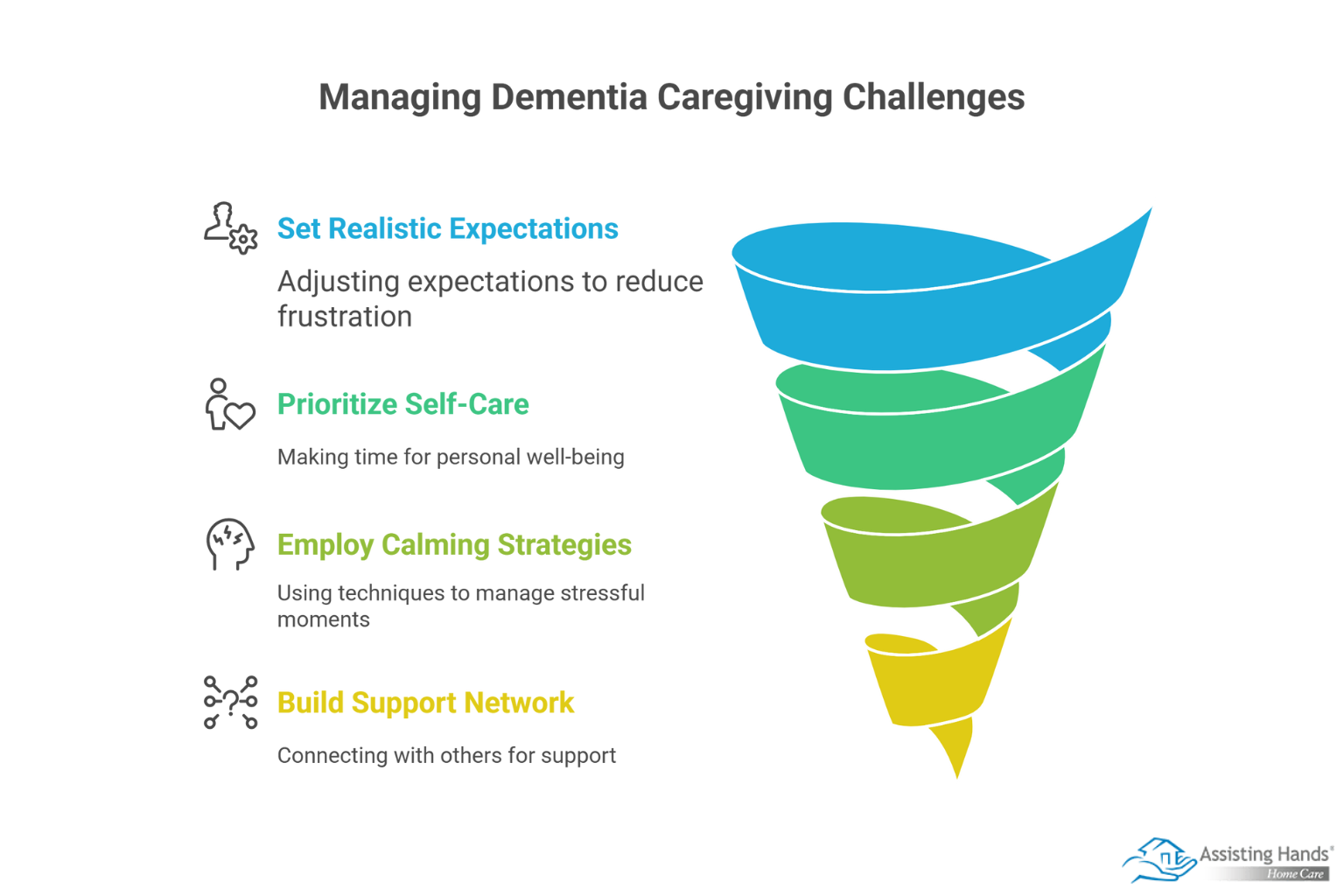
Table of Content
Caring for a senior loved one with dementia can be a deeply rewarding experience but also comes with its share of emotionally challenging moments. Whether it’s navigating feelings of frustration, sadness, or exhaustion, understanding how to manage these emotions is key to maintaining your wellbeing while providing the best care possible.
Recognize and Validate Your Feelings
Being a caregiver for someone with dementia can be overwhelming, and it’s important to acknowledge the range of emotions you might experience. You may feel sadness when your loved one has difficulty remembering you or frustration when a routine task becomes a challenge. These feelings are normal and valid.
Rather than suppressing them, give yourself permission to experience these emotions. Journaling, talking to a trusted friend, or joining a caregiver support group can provide a safe space to process your thoughts and feelings. Remember, caregiving is a complex role, and there’s no shame in admitting it’s not always easy.
Seniors can face a variety of age-related challenges. Though some families choose to take on the caregiving duties, there may come a time when they need a trusted Jasper elder care provider. Families sometimes need respite from their duties so they can focus on their other responsibilities, and some seniors need around-the-clock assistance that their families are not able to provide. Assisting Hands Home Care is here to help.

Set Realistic Expectations
Understanding the progression of dementia can help you set realistic expectations for yourself and your loved one. There will be days when communication is difficult or tasks take much longer than expected. Adjusting your expectations to account for these moments can reduce frustration.
Focus on small, achievable goals rather than striving for perfection. For example, if a full morning routine isn’t possible, completing just one or two steps successfully can still represent a win. By celebrating these small victories, you shift your focus to what’s manageable rather than what feels overwhelming.
Prioritize Self-Care
It’s easy to pour all your energy into caregiving, but neglecting your own needs can lead to burnout. Making time for self-care isn’t a luxury. It’s a necessity. Schedule moments for activities that recharge you, whether it’s a 10-minute walk, listening to your favorite music, or practicing mindfulness.
Don’t hesitate to ask for assistance, either. Friends, family members, or even professional caregivers can lighten your load. Delegating some tasks, even temporarily, gives you the chance to rest and recharge, which ultimately benefits both you and your loved one.
One of the most challenging tasks of helping an elderly relative age in place safely and comfortably is researching agencies that provide homecare services. Turn to Assisting Hands Home Care for reliable, high-quality in-home care for aging adults. We offer 24-hour care for seniors who require extensive assistance, and we also offer respite care for family caregivers who need a break from their caregiving duties.
Employ Calming Strategies during Stressful Moments
Challenging situations, such as your loved one becoming agitated or disoriented, can leave you feeling powerless. Having a tool kit of calming strategies can help you manage these moments more effectively.
- Remain calm – Speak in a soft, reassuring tone to reduce tension.
- Redirect attention – Gently guide your loved one’s focus toward something soothing, such as looking at family photos or engaging in light activities.
- Use validation – Instead of correcting or arguing, validate your loved one’s feelings to de-escalate the situation. For example, if your loved one insists on something untrue, acknowledge his or her emotional state rather than the incorrect fact.
These techniques can defuse emotionally charged moments and restore a sense of peace.
Build a Support Network
You don’t have to face the challenges of dementia caregiving alone. Connecting with others who understand your experiences can make all the difference. Caregiver support groups, whether in person or online, provide a space to share stories, gain advice, and feel less isolated.
Professional resources, such as counselors and dementia care specialists, can offer additional guidance tailored to your situation. Leaning on your network of friends and family for emotional support can also make even the toughest days more manageable. Engaging with a community reminds you that you’re not alone on this journey, and knowing others are there to support and uplift you can provide invaluable strength.
Caring for seniors with dementia can be challenging for family caregivers. Luckily, there is dementia care Jasper families can rely on. Professional dementia caregivers help seniors with dementia stay safe and comfortable at home by preventing wandering, providing cognitive stimulation, and assisting with household chores. Assisting Hands Home Care will work with you to customize a care plan that’s just right for your loved one’s needs. Call us today to discuss how we can give you the peace of mind that comes from knowing your loved one is being cared for with professionalism and compassion.
